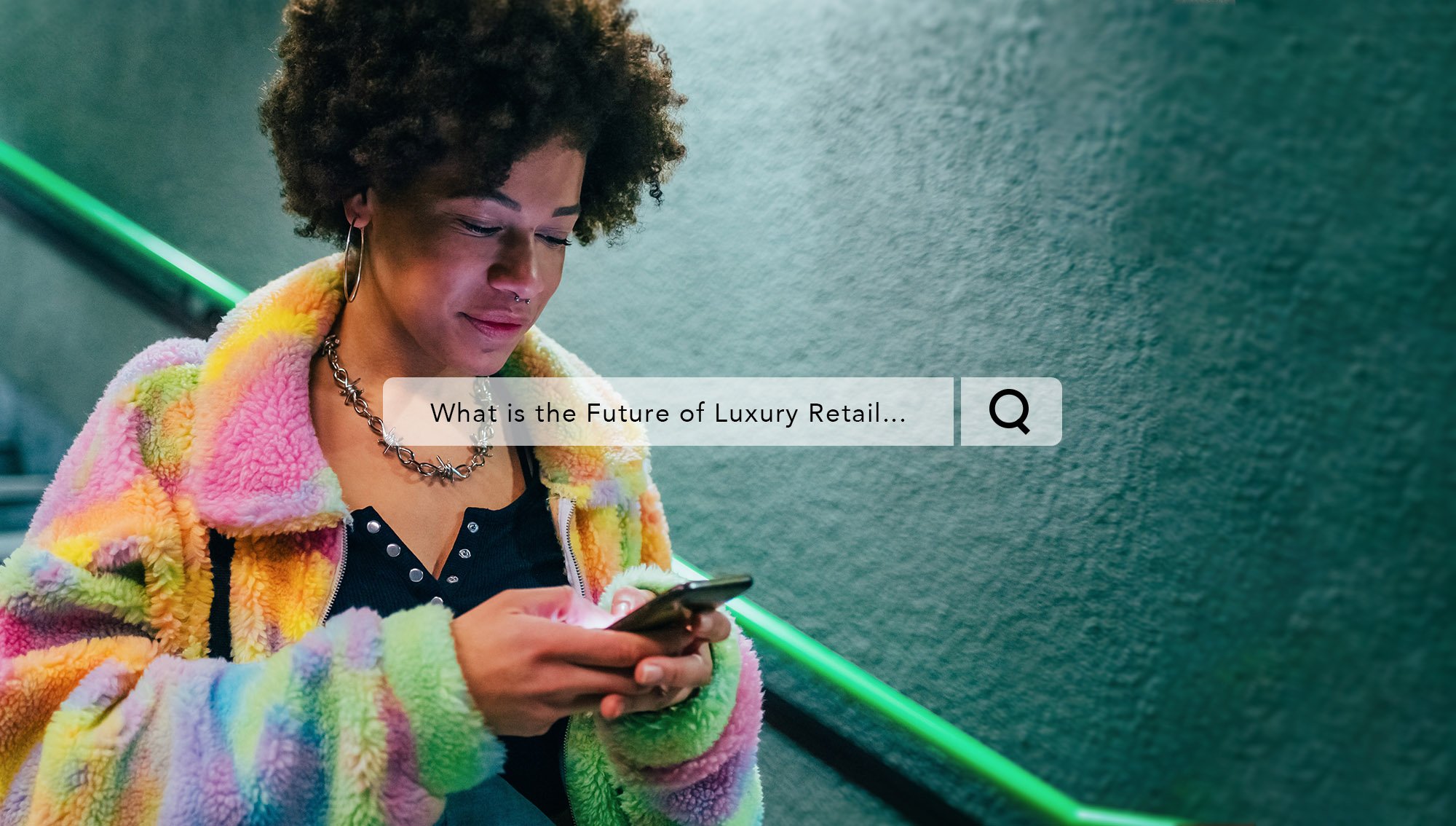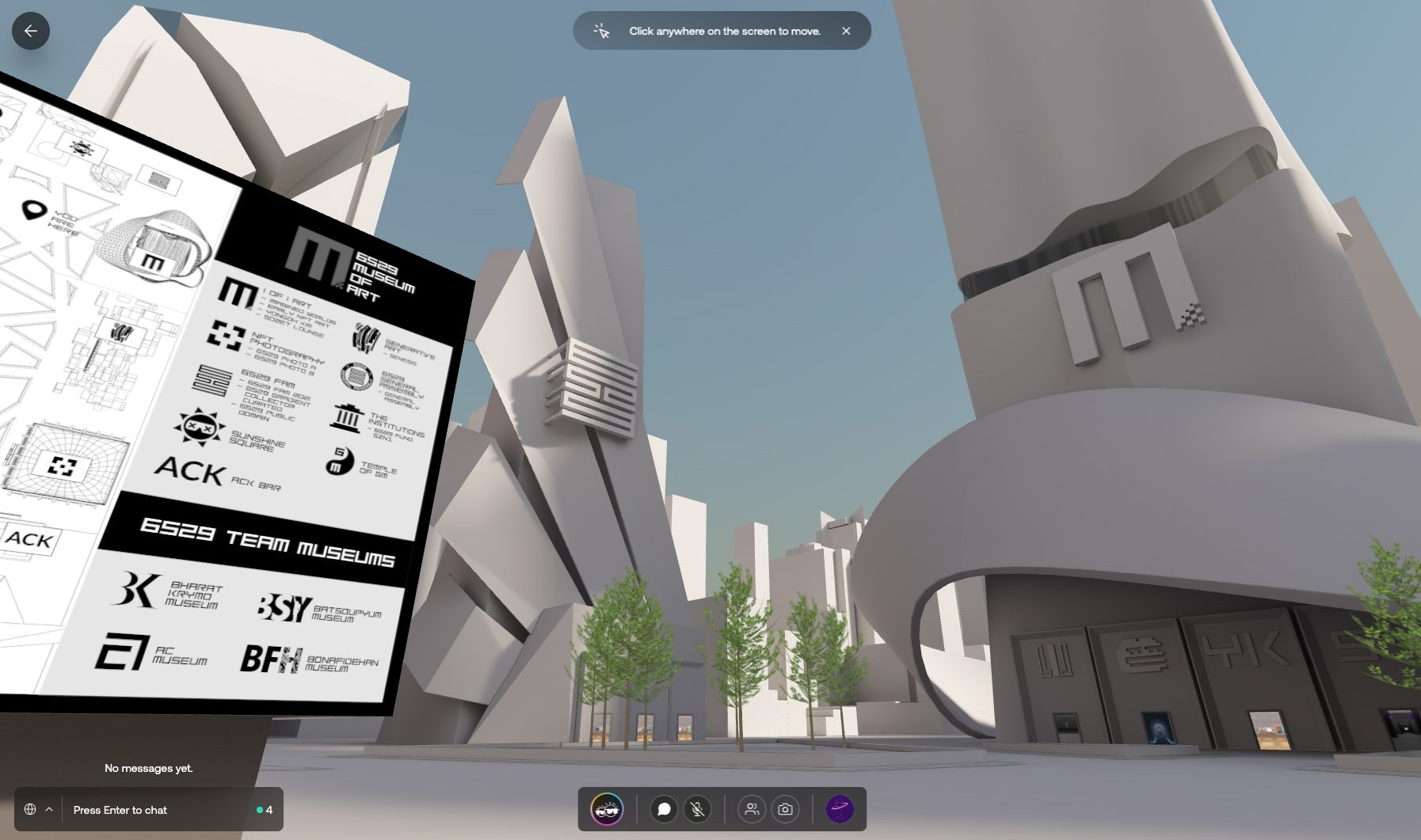The future of luxury retail is likely to be heavily influenced by the development of Web3 technology, a decentralised online ecosystem based on blockchain, and also Web 3.0, also known as the "semantic web," which is a vision for the future of the internet in which machines are able to understand and interpret the meaning of web content, rather than just being able to access and display it. This would enable a more personalised and intuitive online shopping experience, as well as new possibilities for luxury retailers to engage with their customers.
The Adoption of Smart Contracts
One potential application of Web3 technology in the luxury retail industry is the use of smart contracts with platforms such as studio.manifold.xyz. These are self-executing contracts with the terms of the agreement between buyer and seller being directly written into lines of code. This means that the terms of the contract are automatically enforced by the underlying blockchain technology, without the need for third-party intermediaries. This can provide increased security and transparency, as the terms of the contract are easily verifiable and cannot be changed without the consent of both parties. This could enable luxury retailers to offer more personalised and customized products and services, as well as provide a more secure and transparent purchasing process.
Security and Fraud Prevention
In addition, the use of blockchain technology in smart contracts can also provide a more secure and transparent record of transactions. This can help to reduce the risk of fraud and other illegal activities, as well as provide greater visibility and accountability in the purchasing process. Overall, the use of Web3 technology in the luxury retail industry has the potential to improve security and transparency in the purchasing process, which could help to build trust and confidence among consumers.
The use of AR and VR experiences
Oncyber 6529 Museum District - Online Interactive City
Another area where Web3 could have a significant impact on the luxury retail industry is in the use of virtual and augmented reality. With Web3, these technologies could be used to create highly immersive and individual shopping experiences, allowing customers to virtually try on and interact with luxury products in a way that is not currently possible. This could also open up new possibilities for retailers to offer virtual consultations and other personalised services.
Example Twitter space with over 800 listeners, 3 hosts and 3 speakers
Create Virtual Stores
The reality of creating virtual stores with platforms such as https://oncyber.io/ allows you to create, sell and trade virtual goods such as Non-Fungible Tokens ‘NFTs’ opening up a new revenue stream and customer engagement facility. Live, real-time views allow you to see who’s in your store, and what they are looking at and interact with them personally. Tiffany & Co. launched into the NFT market with a limited collection of 250 custom jewel-encrusted pendants for holders of CryptoPunks for $50,000 each, selling out within hours for $12,500,000.
Hold Live World Wide Events
We have seen live events happening such as rooftop parties, live DJs, and store openings that linked with Twitter Spaces, acting as a live audio conference, creating amazing, intuitive user experiences. Connect with people all around the world in a seamless experience that allows multiple hosts and speakers to talk and discuss topics, whilst thousands of people tune in on their phones to listen and interact. This is not the future this is happening right now!
Overall, the development of Web3 technology has the potential to transform the luxury retail industry by enabling more personalised and engaging shopping experiences, as well as providing new opportunities for retailers to connect with their customers. It remains to be seen exactly how these technologies will be adopted and integrated into the luxury retail space, but it is clear that they will play a significant role in the industry's future.
Further reading…
What is Web3?
Web3 is the third generation of the World Wide Web, also known as the "decentralised web." It refers to the development of technologies and protocols that allow for the creation of a more decentralised and distributed internet, as opposed to the centralised model of the current web.
Web3 technologies, such as decentralised applications (dApps) and blockchain networks, aim to give users more control over their online data and interactions and to enable new kinds of applications and services that are not possible on the current web. This could include things like peer-to-peer marketplaces, decentralised finance (DeFi) platforms, and more.
Overall, the goal of web3 is to create a more open, decentralised, and inclusive internet that allows for greater innovation, collaboration, and user control. It is still in its early stages of development, but many believe that it has the potential to significantly impact the way we use and interact with the web.
What is the Blockchain?
The blockchain is a decentralised, distributed ledger technology that allows for the secure, transparent, and verifiable storage and transfer of data and assets. It is often used as the underlying technology for cryptocurrencies, but it has many other potential uses as well.
A blockchain is essentially a chain of blocks that contains data and information. Each block contains a certain amount of data, and once it is added to the chain it cannot be altered or deleted. This makes the blockchain secure and transparent, as it allows anyone to see the data that is stored on the chain, but also ensures that the data remains immutable.
One of the key benefits of the blockchain is that it is decentralised, meaning that it is not controlled by any single entity. Instead, the network is maintained by a group of participating nodes, which work together to verify and validate transactions on the chain. This decentralised structure makes the blockchain resistant to tampering and censorship and allows for a high degree of trust and transparency.
Overall, the blockchain is a powerful technology that has the potential to revolutionise many different industries, from finance and banking to supply chain management and more.
In Simple terms, the blockchain is a technology that helps us keep track of things in a unique way. It's like a big digital book that lots of computers all around the world help to keep updated. Each page in the book has lots of information on it, and once something is added to a page, it can't be changed or deleted. This makes the information in the book very reliable and trustworthy. The blockchain is used for things like helping us keep track of money and other valuable things, and it can make it easier for us to do things like buy and sell things online.
Why is Web3 Important?
Web3 is important because it represents a shift towards a more decentralised and distributed internet. The current web, often referred to as web2, is largely centralised, with a few large companies and organisations controlling much of the infrastructure and content on the internet. This can lead to issues such as lack of privacy, censorship, and lack of competition, which can limit innovation and user choice.
Web3 technologies, such as decentralised applications (dApps) and blockchain networks, aim to address these issues by enabling a more decentralised and distributed internet. This could allow for greater user control over their online data and interactions, as well as enable new kinds of applications and services that are not possible on the current web.
Overall, the importance of web3 lies in its potential to create a more open, decentralised, and inclusive internet that allows for greater innovation, collaboration, and user control. This could have significant benefits for individuals and businesses alike and could help to drive the next wave of innovation on the internet.
Web3 technologies have the potential to significantly impact eCommerce in a number of ways. Some of the potential benefits and changes that web3 could bring to eCommerce include:
Increased privacy and security: One of the key benefits of web3 for eCommerce is that it could enable greater privacy and security for online transactions. Decentralised applications and blockchain networks can provide more secure and verifiable ways to store and transfer data and assets, which could help to protect against fraud and other types of online crime.
Improved transparency and trust: Web3 technologies could also help to improve transparency and trust in eCommerce. For example, blockchain-based supply chain management systems could provide more transparent and verifiable information about the origins and provenance of products, which could help to build trust between buyers and sellers.
Reduced fees and barriers to entry: Web3 technologies could also reduce fees and barriers to entry for eCommerce businesses. For example, decentralised finance (DeFi) platforms could provide more accessible and affordable financial services for businesses, allowing them to more easily accept payments and manage their finances.
New business models: Finally, web3 technologies could enable the development of new business models for eCommerce. For example, peer-to-peer marketplaces could allow individuals to easily buy and sell goods and services directly with each other, without the need for intermediaries such as banks or credit card companies.
The impact of web3 on eCommerce is likely to be significant and could lead to many changes and improvements in the way that online transactions are conducted. While it is still early days for web3 technologies, many believe that they have the potential to drive the next wave of innovation in eCommerce.
Want to Learn More
If you are interested to learn more about Web3 and how it can help or impact your business please get in touch and arrange a consultation with our advisors






